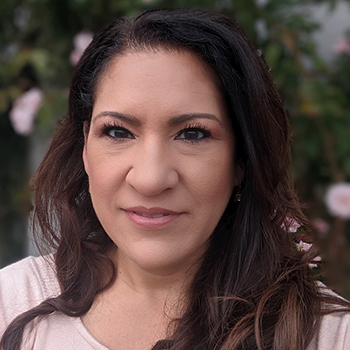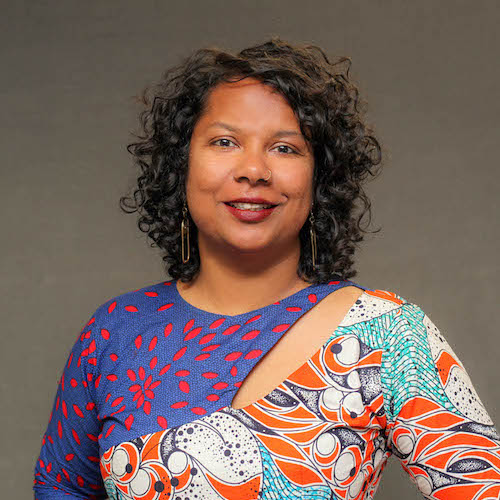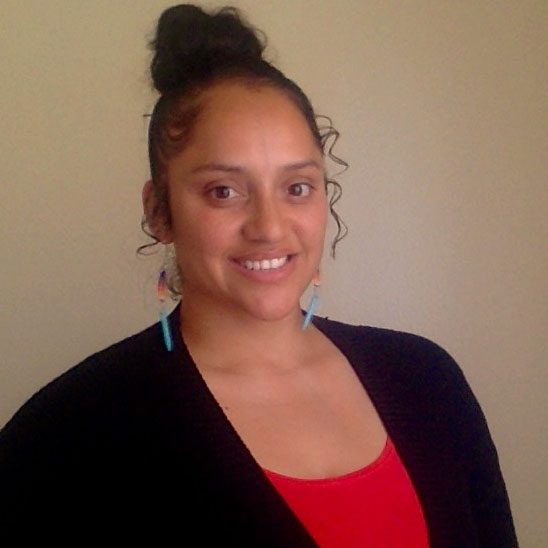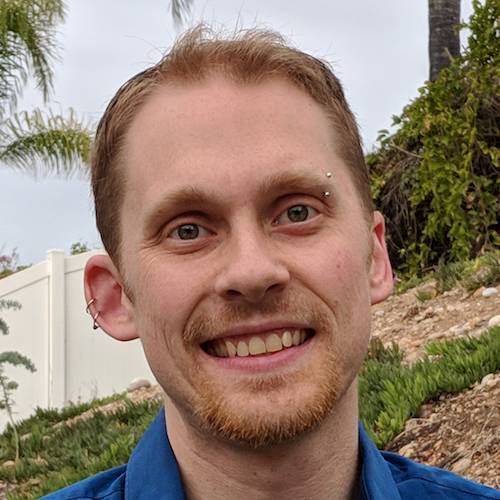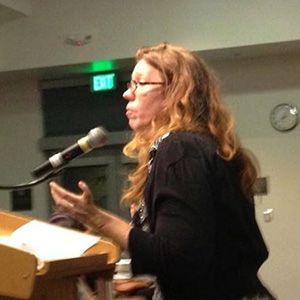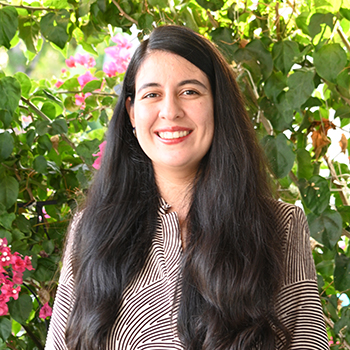Professors of Equity
All university programs and activities are open and available to all regardless of race, sex, color, ethnicity or national origin. Consistent with California law and federal civil rights laws, SDSU provides equal opportunity in education and employment without unlawful discrimination or preferential treatment based on race, sex, color, ethnicity, or national origin. Our commitment to equal opportunity means ensuring that every student and employee has access to the resources and support they need to thrive and succeed in a university environment and in their communities. SDSU complies with Title VI of the Civil Rights Act of 1964, Title IX of the Education Amendments of 1972, the Americans with Disabilities Act (ADA), Section 504 of the Rehabilitation Act, the California Equity in Higher Education Act, California’s Proposition 209 (Art. I, Section 31 of the California Constitution), other applicable state and federal anti-discrimination laws, and CSU’s Nondiscrimination Policy. We prohibit discriminatory preferential treatment, segregation based on race or any other protected status, and all forms of discrimination, harassment, and retaliation in all university programs, policies, and practices.
SDSU is a diverse community of individuals who represent many perspectives, beliefs and identities, committed to fostering an inclusive, respectful, and intellectually vibrant environment. We cultivate a culture of open dialogue, mutual respect, and belonging to support educational excellence and student success. Through academic programs, student organizations and activities, faculty initiatives, and community partnerships, we encourage meaningful engagement with diverse perspectives. As a higher education institution, we are dedicated to advancing knowledge and empowering individuals to reach their full potential by prioritizing inclusive curriculum development, faculty and staff training, student mentorship, and comprehensive support programs. At SDSU, excellence is built on merit, talent, diversity, accessibility, and equal opportunity for all.
All faculty and staff, regardless of race, sex, color, ethnicity or national origin, who are interested in attending Professors of Equity sessions are welcome.
Leticia Gonzalez Pileski, Psy.D., LMFT
Professor of Equity in Education
Dr. Letty Gonzalez Pileski identifies as a Latinx American female, clinician, professor and an international educator. She is the Executive Director for San Diego State University’s Center for Community Counseling and Engagement, Adjunct Faculty in the College of Education, is a California Licensed Marriage and Family Therapist and an AAMFT Approved Clinical Supervisor/Mentor.
Dr. Pileski has been actively involved in both domestic and international educational efforts since 2005 in the United States and abroad (Cambodia, China, Costa Rica, El Salvador and Mexico). She co-founded and developed International continuing education programs, providing global workshops and sensitivity training to both graduate students and practicing professionals.
She joined the Professors of Equity summer 2020 in effort to collaborate with San Diego State University’s dedication to social justice and inclusive pedagogy.
Sureshi Jayawardene, Ph.D.
Professor of Equity in Education
Sureshi Jayawardene, Ph.D. is a scholar of the African diaspora in the Indian Ocean world. Her research and teaching interests examine epistemologies, memory, diasporic consciousness, family and kinship formations, spirituality and expressive cultures among the Siddis, Sheedis and Ceylon Africans in South Asian Black geographies. For over 2 decades, Dr. Jayawardene has engaged in equity issues within higher education, in the areas of student advocacy and activism, social justice organizing, antiracism work, addressing implicit bias and microaggressions and establishing equitable faculty hiring practices.
Erica Redner-Vera
Assistant Professor
Erica Redner-Vera is a first-generation Chicana mother-and activist-scholar.
She is an Assistant Professor of Criminal Justice in the School of Public Affairs at San Diego State University. Prior to joining SDSU, Dr. Redner-Vera was a Visiting Assistant Professor in the Sociology Department at the University of Montana and a Faculty Associate in the School of Criminology and Criminal Justice at Arizona State University. Dr. Redner-Vera’s research interests include race, ethnicity, crime and justice, especially issues concerning American Indians. She is a 2023 Fellow of the American Association of Hispanics in Higher Education, a 2021 Fellow of the Racial Democracy, Crime and Justice Network and a 2015 Graduate Research Fellow of the Bureau of Justice Statistics, where her dissertation examined the treatment of American Indian defendants in United States Federal Courts. Currently, her research investigates how American Indian defendants, especially American Indian female defendants, are treated across multiple decision points and cumulative disadvantage they endure, whether disparities for this group increased over time and whether social context affects how American Indians are treated in federal courts. Dr. Redner-Vera received her M.S. and Ph.D. in Criminology and Criminal Justice from Arizona State University in 2011 and 2019, respectively and her B.A. in Criminal Justice from the University of Nevada, Reno in 2008.
Erica is a proud member of the following SDSU’s Employee Resource Groups: Latinx, Chicanx, Hispanic Faculty Staff Association, Native American & Indigenous Faculty & Staff Association and Parenting and Caregiving. She joined the Professor of Equity team in Fall 2024 and brings a passion and expertise to uplift equity and inclusion across the SDSU community, especially for individuals from historically marginalized and underserved groups.
Daniel L. Reinholz, Ph.D.
Professor of Equity in Education
Daniel L. Reinholz, Ph.D. is an Associate Professor in the Department of Mathematics and Statistics at San Diego State University. Broadly speaking, Dr. Reinholz’s research focuses on creating tools for educational transformation, to improve equity and mitigate systemic oppression. Their research is primarily situated within three interrelated areas.
Disability Justice. Dr. Reinholz’s work is grounded in a disability justice perspective that attends to the intersections of ableism, racism, sexism and other systems of oppression. As a disabled educator, Dr. Reinholz aims to open opportunities for disabled students, especially those who are multiply marginalized. Disability justice provides a lens and a vision for what a truly transformative and liberatory education system could look like.
Equity Analytics. Dr. Reinholz is a co-developer of the EQUIP tool, which is a free web-based classroom observational tool for tracking patterns of implicit bias in teaching. EQUIP is designed to empower teachers, professional developers and researchers to understand and improve equity in classroom teaching. EQUIP provides data to help illuminate the subtle and sometimes invisible racialized and gendered patterns that play out in classroom participation, which can serve to privilege some students over others.
Institutional Transformation. Ultimately, the goal of Dr. Reinholz’s work is to change the education system so that it can be more just and better serve the needs of all students. For this reason, they study education from a systems perspective and develop new models that can be used for change. They are a working group leader in the Accelerating Systemic Change Network (ASCN), which aims to support researchers to better use change theory in their projects.
Together, these three areas of research work in conjunction, beginning with a vision for what the education system could look like, using analytics to help draw attention to that vision.
Former Professors of Equity
Cali Linfor (she/her/hers) is a 20 year lecturer in the Department of Rhetoric and Writing Studies at San Diego State University. She came into the department after completing an MFA in Creative Writing at SDSU. A poet, editor, activist and essayist, her academic interests reside in Third Space Rhetorics, Diaspora Rhetorics, Composition Studies, Critical Race Theory, Curriculum Studies, Disability Studies, Queer Studies, Gender Studies, Indigenous Studies and their intersections. She, along with her colleagues in RWS has recently been awarded a three year NEH Grant for Hispanic Serving Institution to shift the focus of SDSU’s RWS curriculum from a focus on European Rhetorics to Global and Third Space Rhetorics.
In addition to teaching composition, creative writing, critical reading and thinking and rhetoric, Linfor has dedicated most of her professional life to the fight for equity through curricular change and professional development of teachers across the disciplines and the segments of education. When not working with her SDSU students, Linfor collaborates with faculty from elementary school to university around issues of alignment, inclusion, skill based learning and curriculum.
Her work has been pivotal to the removal of remedial courses in the CSU and Community College systems as well as the implementation of multiple measures for course placement. She has led equity efforts in terms of systematic and structural oppression for minoritized students both in terms of curriculum, pedagogy, assessment and policy in statewide and local initiatives such as The Compact for Success, The College Avenue Compact, Early Assessment Programs and the California Community College Basic Skill Initiative.
Most recently, Linfor’s equity work centered on utilization the networks created in her decades of regional partnerships to create safe educational passage ways for queer youth, young adults and students from elementary school through university with partnerships with the SDSU Pride Center & LGBTQ Studies, San Diego City Schools and Southwestern’s CHEL program. She has also devoted her time to mutual aid at risk staff and faculty during the Pandemic. Linfor is also working toward the creation of a SDSU Disability Cultural Center and is an Ambassador for Universal Design for Learning. This year, she was honored with a Diversity Leadership Award, for her decades of advocacy.
Linfor is a founding member of the Lacuna Collective, an art collective that creates space for voices that often have none. Her book of poetry A Book of Ugly Things, appears in Lantern Tree: Four Books of Poems which won a San Diego Book Award and centers a disabled worldview. She is a member of the American Writing Program's Disabled Writers Caucus. Currently, Cali is completing a second book of poetry entitled I, Animal.
Linfor is a proud member of SDSU's Pride and Disability Employee Resource Groups.
To the Professor of Equity Team, she brings joy as an act of resistance and a centering of futurity and survivance.
Amy Sanchez Arteaga makes art, teaches and writes about living as a transborder subject between the Californias. Since 2010 she has worked as part of Cognate Collective, a binational research and art collaboration that explores how cultural and economic exchange between transnational communities can be mobilized to build networks of solidarity that defy solidifying (geo)political boundaries. She is a lecturer in the department of Art + Design where she teaches Latin American Art History, Border Art History, Feminist Cultural Production and Contemporary Art Theory. Her research is interested in the intersection of Art theory and Art practice as critical aesthetic praxis, the influence of feminisms of the Americas on collective and community-based art practices and Sound Art.
Sanchez Arteaga holds an MFA in Art from UC Irvine with an emphasis in Critical and Curatorial Studies, where she also completed the Critical Theory and Graduate Feminist Emphases. As part of Cognate Collective she has exhibited work locally and internationally at venues including the Museum of Contemporary Art San Diego, the Getty Center, The Craft Contemporary, School of the Art Institute of Chicago, FLACSO Arte Actual in Quito, Ecuador and the Organ Kritischer Kunst in Berlin, Germany. Regionalia, a monograph of their collective work, was published by X Artists' Books in 2020.
Events
